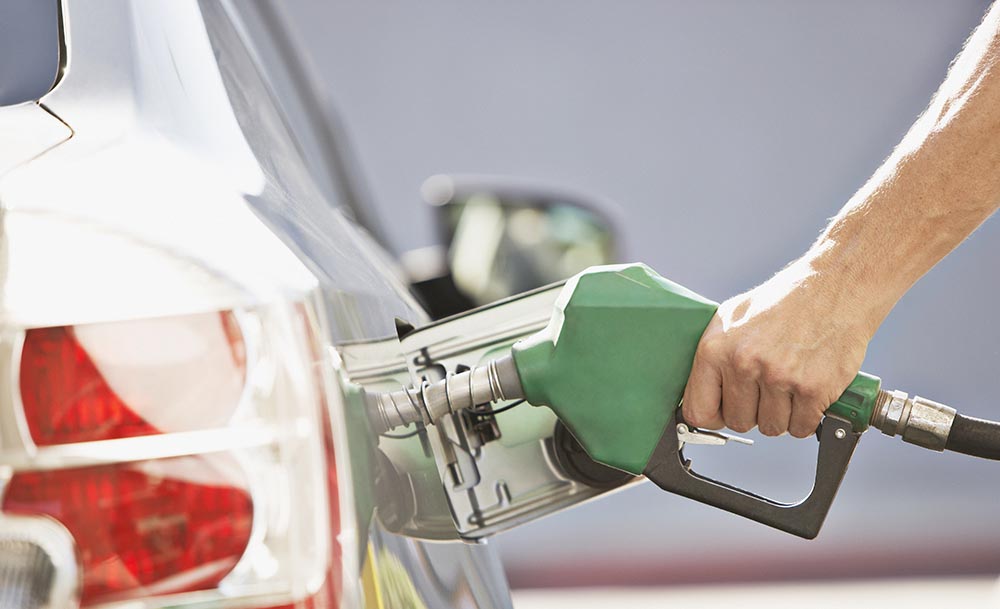Busting fuel myths

Myth: turning off your vehicle at lights, rather than idling, saves fuel
If you’re stuck in a traffic jam for an extended period, then there is value in shutting down the engine. If it’s just a normal set of traffic lights, leave the engine running. The main consideration is safety. If you switch the car off, generally your electrical components aren’t working, such as your indicators, fan and airconditioning.Myth: manual cars are more economical than automatics
That used to be the case, but no longer. When transmissions were quite basic they typically increased fuel consumption and reduced performance. But modern automatic transmissions can match or improve upon a manual.Myth: diesel vehicles are more economical
In terms of fuel consumption, yes they are as much as 25% better than petrol. The energy content of diesel is higher, as is the efficiency of diesel engines. The trade-off is that it’s more difficult for diesels to meet ever-increasing emissions standards, so manufacturers have had to use more costly technologies to meet the standards and diesel engines can cost more to service and maintain. With a diesel, it comes down to whether you are a low or high mileage driver. If you do high mileage, you’ll get a cumulative benefit from lower fuel consumption. But if you don’t do many kilometres, you can save on the initial purchase price because petrol engine car variants are cheaper, and your servicing costs are lower.Myth: fuel saving devices save money
No, and in fact, this is a major concern for RACQ. Over the years we’ve seen several fuel-saving additives or devices, often associated with claims and testimonials that they work. But there is an Australian Standard to test these and our strong advice is that if you are offered one, firstly check if it’s been tested to the Standard because you cannot rely on testimonials or advertising claims. Even if they have been tested to the Australian Standard, you then must decide on the cost of that device versus the payback period on the fuel it will save. If fuel-saving devices worked, manufacturers would fit them as standard.The airconditioner uses more fuel
That’s true. Airconditioners do increase fuel consumption, but driver comfort has a value too. If the driver is hot and uncomfortable, there’s a risk they’ll make mistakes or drive more aggressively. This can put their safety at risk. My view is there is a fuel consumption penalty, but use A/C and remain comfortable, composed and drive as well as you can.Mowers and gardening equipment can use E10
The manufacturer is the primary source of advice whether an engine is or isn’t suitable for e10. Often you’ll be pumping fuel into the car and think you can pump a few litres into the fuel can for the lawnmower and whipper snipper. Be aware that e10 is generally not suitable for a lawnmower, because lawnmowers, whipper snippers and garden equipment use simple engine technologies, such as carburettors, and their plastic or rubber fuel components may not be e10 compatible. You’ll either end up with it not running properly or you’ll have reliability problems or degradation of fuel systems.Related topics
Things to note
The information in this article has been prepared for general information purposes only and is not intended as legal advice or specific advice to any particular person. Any advice contained in the document is general advice, not intended as legal advice or professional advice and does not take into account any person’s particular circumstances. Before acting on anything based on this advice you should consider its appropriateness to you, having regard to your objectives and needs.
Insurance Products (excluding Travel Insurance) are issued by RACQ Insurance Limited ABN 50 009 704 152 (RACQI) and arranged by RACQ Distribution Services Pty Ltd (RDS) ABN 35 116 361 650, AFSL 567130 and RDS' authorised representatives (including RACQ Operations Pty Ltd ABN 80 009 663 414, AR No. 234978 (RACQO)). Conditions, limits and exclusions apply.
Any advice provided by RDS and RACQO is general advice only and does not take into account your personal objectives, financial situation or needs and you will need to consider whether the advice is appropriate for you. Read the Product Disclosure Statement (PDS) before making a purchase decision on the product. You can also access our Target Market Determinations on this website.
RDS receives a commission from RACQI for the policies it arranges. RACQO receives fees paid for services it provides to RDS. Further details about remuneration are available on request prior to purchasing.
Banking and loan products issued by Members Banking Group Limited ABN 83 087 651 054 AFSL/Australian credit licence 241195 trading as RACQ Bank. Terms, conditions, fees, charges and lending policies apply. This is general advice only and may not be right for you. This information does not take your personal objectives, circumstances or needs into account. Read the disclosure documents for your selected product or service, including the Financial Services Guide and the Terms and Conditions, and consider if appropriate for you before deciding.
Except for RACQ Bank, any RACQ entity referred to on this page is not an authorised deposit-taking institution for the purposes of the Banking Act 1959 (Cth). That entity’s obligations do not represent deposits or other liabilities of RACQ Bank. RACQ Bank does not guarantee or otherwise provide assurance in respect of the obligations of that entity, unless noted otherwise.
RACQ Bank subscribes to the Customer Owned Banking Code of Practice which establishes higher standards than the law requires. The Code reflects modern consumer expectations and developments in approaches to issues such as consumer vulnerability, guarantors, and supporting customers through financial hardship. Please read our Customer Owned Banking Code of Practice page for more information.
RACQ Operations Pty Ltd (ABN 80 009 663 414 AR 000234978) and Members Travel Group Pty Ltd (ABN 45 144 538 803 AR 000432492) are acting as an Authorised Representative of the issuer of the insurance, Tokio Marine & Nichido Fire Insurance Co., Ltd. (ABN 80 000 438 291 AFSL 246 548). Any advice set out above is general in nature only, and does not take into account your objectives, financial situation or needs. Before purchasing any travel products, please consider the RACQ Travel Insurance Product Disclosure Statement (PDS) and the Target Market Determinations (TMDs) that apply to these products. Whilst the PDS outlines the Terms and Conditions of these products, the TMDs outline the intended class of customers that comprise the target market for these travel products. This will allow you to consider which products best suit your objectives, financial situation and needs and consider the products appropriateness to your personal circumstances. TMDs also outline matters involving the distribution and the review of these products. The PDS, Supplementary PDS and TMDs for each travel product can be found here.
